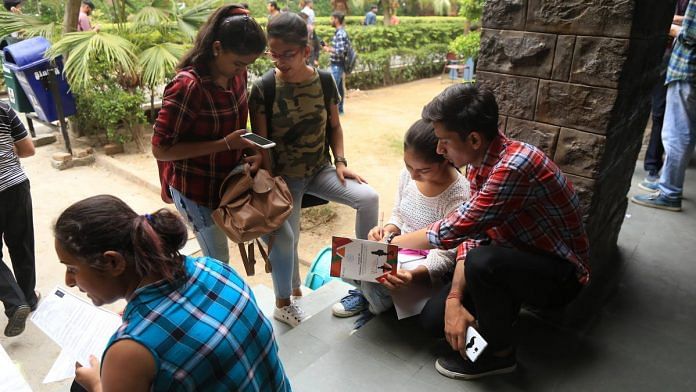
Thank you dear subscribers, we are overwhelmed with your response.
Your Turn is a unique section from ThePrint featuring points of view from its subscribers. If you are a subscriber, have a point of view, please send it to us. If not, do subscribe here: https://theprint.in/subscribe/
The year 2023 has already brought in a lot of news in the Indian Institute of Technology dossier, despite the fact that JEE results have not yet been out. Unfortunately, the news is not what IIT would like to have on its plate. The death of Kedar Suresh, a 20-year-old B.Tech student from IIT Madras marked the fourth suicide of 2023 from the institute. The incidents have not just been restricted to IITs as time and again, people have been discussing the frequency of student suicides in prestigious institutes across the country. The last 5 years have seen 61 incidences of suicides from IIT, IIM and NIT students, as informed by the Union Ministry of Education to the Rajya Sabha. This brought the decision by the IIT Council to appoint mental health counsellors on every campus, which will soon be implemented in other institutions.
While the delayed response is still being lauded by everyone as it shows a ray of hope for mental health awareness among education systems, this might not be the long-term solution for the prevalent problem at hand. The various institutions that have been at the helm of student suicide cases, more commonly referred to as Institutes of National Importance(INIs), are known for their rigorous curriculum and competitive environment, which have factors inducing suicidal tendencies among students deeply rooted in the core beliefs of the system. Suresh’s brother wrote a letter to Prof V Kamakoti, Director, IIT Madras, citing the role of a teacher in exerting undue pressure on the deceased despite being aware of the deteriorating mental health, leading to the incident. In today’s time, India continues to boast success stories from IITs and IIMs in the global arena, while forgetting that the success rate still remains low as many who manage to get into the institutes after putting a lot of effort realise the entrances were not at all relevant to the curriculum put forward to them and that starts the struggle to “survive” every semester in the most rigorous, cut-throat environment.
Universities and Institutes might find it difficult to contemplate the need for a review of the academic experience of the students instead of revamping the pay grades for academic counsellors and conducting biennial seminars for stress management for the students, which barely impacts the root causes of the rote learning mechanism. The need for emphasis on holistic education and the significance of practical learning leads to the grooming of industry-ready professionals, which is what the “real” world demands in the 21st Century. Students have a template of expectations for their highly anticipated “college life”, they look forward to the first year to get accustomed to the transition and planning on how to lay down the foundation of their careers. However, second year onwards, the realisation of the never-ending pressure of assessments and competitions become difficult to cope with and it has been a very prevalent time when the suicide rates skyrocket. If the transition was centred towards making the students comfortable in the new environment, it might lead to a much clearer outlook for the students for learning the skills that they anticipated to be taught.
The appointment of counsellors in universities might help a few, but when it comes to the scale of students being dealt with in the universities, it will become a very feeble attempt at addressing the mental health concerns of hundreds of students who might be feeling a variable intensity of stress within themselves, which might not be in the capabilities of a few counsellors on campus. With more and more cases on the rising, authorities are becoming ready to see the problems in a more in-depth manner, but the question still persists if academic factors of stress amongst students will be addressed and if yes, then by when can students expect a significant solution to the issue?
These pieces are being published as they have been received – they have not been edited/fact-checked by ThePrint.

COMMENTS